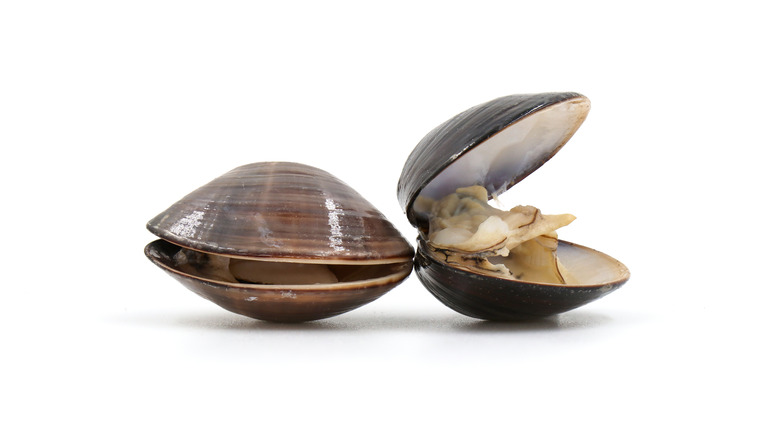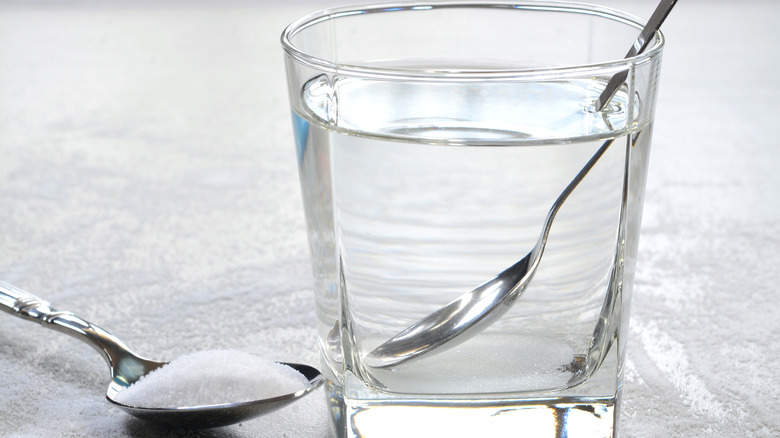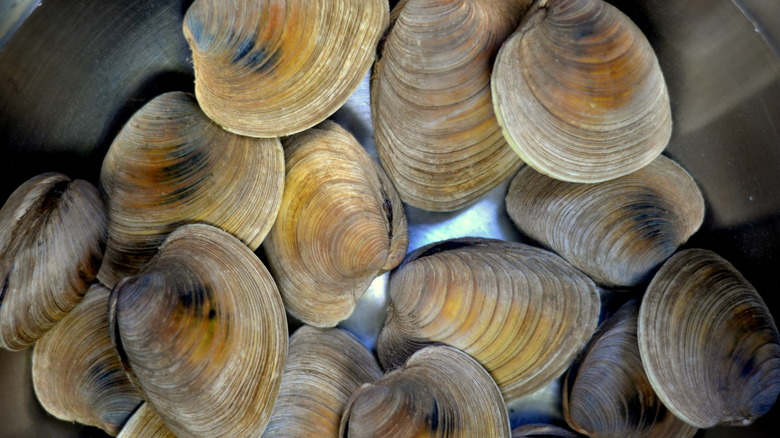Do You Really Have To Soak Clams?
When it comes to clams, there is one thing most people can agree on: cooking them seems intimidating. Do a quick internet search, and you will quickly find a consensus. How can a little shellfish cause such angst? Per Sciencing, clams are a type of invertebrate animal (meaning they don't have a backbone) encased in two shells with a hinge that allows the shells to open and close. Clams tend to live out their lives in sand and mud until they are dredged or dug up and readied to be grilled, fried, tossed into spaghetti, or thrown on a pizza.
If you do muster up the courage to prepare clams in the convenience of your own home, you will realize some of that intimidation centers around soaking your clams before cooking them. There are two schools of thought floating around the internet about whether you actually need to soak your clams at all, and if you choose to, what type of water you should soak them in. It can be confusing, so let's start at the top. Should you soak your clams in water before cooking them, and if so, what type of water?
The importance of soaking clams
The line is clearly drawn in the sand. AllRecipes says you do want to soak your clams. The outlet suggests soaking clams in fresh water for 20 minutes to help the clam filter out any sand or whatever is in the clam's digestive system. However, Edible Jersey is very clear on two points and they are: It takes about 48 clams to feed four people, so plan accordingly, and you should not soak your clams in fresh, cold water unless you want to kill them.
In fact, Edible Jersey explains soaking your clams in fresh water will also cause you to lose the delicious clam juice that is going to be released into the water after the clam dies. Instead, if you absolutely feel the need to soak your clams, they suggest bringing home a bucket of water from where your clams were collected and allowing them to soak for an hour so they can release whatever is still left in their system.
But the outlet also points out that clams are not inherently sandy, noting that clams don't take in sand and mud along with the water they siphon. Sandy clams are a result of how the clams are commercially caught. If you catch your clams on your own, you shouldn't have a problem. So based on practicality, we suspect most people will want to soak their clams.
Should you add salt?
But back to the water. MasterClass says you should soak your clams for 20 minutes to an hour to remove whatever grit you don't want in your mouth, but they also recommend salt water over fresh water. The site notes that you are trying to ensure your clams soak in water that contains the same amount of salt as is found in seawater. They also caution that you do not want to pour the clams and the water they were soaking in through a strainer or you risk getting the extracted sand all over your clams. So, point, set, and match for salt water.
Edible Jersey also tackled the question of using a pinch of cornmeal or black pepper to stimulate clams to siphon water and get rid of what is in their intestines; however, they note when you eat a clam you are eating everything: the flesh, the digestive system, and the organs. Regardless if you soak them or not, whatever is in the clam's system is going to end up in your belly, but that's part of what makes them good!


